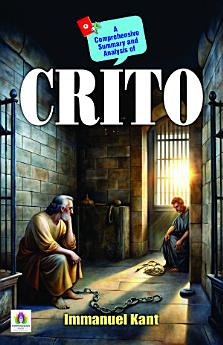Crito: Demanding Ebook Book
Tungkol sa ebook na ito
Socrates, however, rejects Crito’s arguments, grounding his refusal in his unwavering commitment to the principles of justice and the social contract. He contends that it would be unjust to escape, even if his sentence is unjust, because to do so would undermine the very laws and institutions that uphold the city-state. Socrates personifies the laws of Athens and argues that by choosing to live under these laws his entire life, he has implicitly agreed to abide by them—even when they render an unfavorable verdict.
The central philosophical themes explored in *Crito* include: - **Justice vs. Retaliation** – Socrates asserts that committing an injustice in response to an injustice is morally wrong. - **Social Contract** – Socrates introduces the concept that citizens enter into a social contract with the state, agreeing to follow its laws in exchange for protection and order. - **Moral Integrity** – Socrates maintains that it is better to suffer an injustice than to commit one, highlighting his belief that virtue and moral integrity surpass even life itself. - **Duty to the State vs. Individual Freedom** – Socrates contends that loyalty to the state’s laws is more important than individual survival or personal desires. - **Philosophical Consistency** – Socrates remains true to his lifelong commitment to reason and virtue, even when it costs him his life.
Socrates’ calm acceptance of his fate serves as a powerful demonstration of his philosophical ideals in practice. He argues that by escaping, he would be betraying not only the laws but also the philosophical principles he has taught and lived by. Ultimately, Socrates chooses to die rather than compromise his moral integrity, reinforcing his belief that living justly is more important than mere survival.
*Crito* remains one of Plato’s most profound dialogues on ethics and political philosophy, encapsulating Socrates’ role as both a philosopher and a moral exemplar. Its exploration of justice, loyalty, and moral duty continues to resonate in modern debates on civil disobedience and the individual's relationship with the state.
Mga rating at review
Tungkol sa may-akda
Plato (c. 427–347 BCE) was a classical Greek philosopher and the student of Socrates. He founded the Academy in Athens, one of the earliest institutions of higher learning in the Western world. Plato’s works, primarily written in the form of dialogues, explore a wide range of philosophical themes including justice (*The Republic*), virtue (*Meno*), knowledge (*Theaetetus*), love (*Symposium*), and political theory (*Laws*). Plato’s philosophy profoundly influenced Western thought, particularly through his theory of forms and his exploration of ideal states and the nature of knowledge. His portrayal of Socrates as a moral philosopher remains one of the most influential legacies in Western philosophy.








